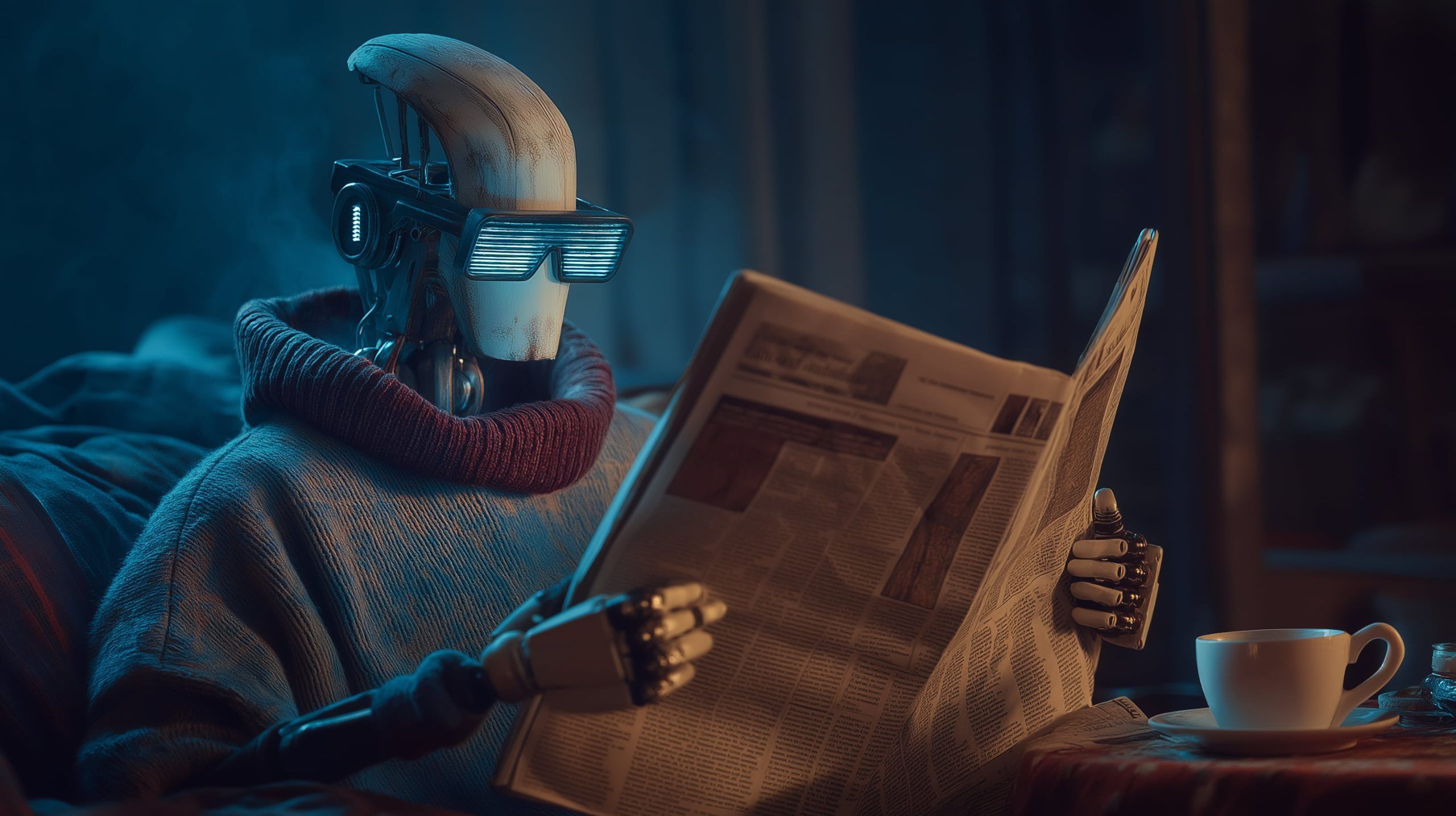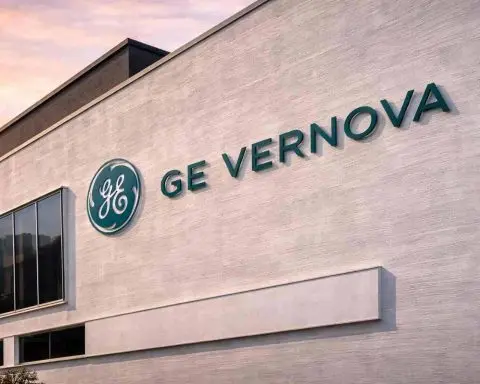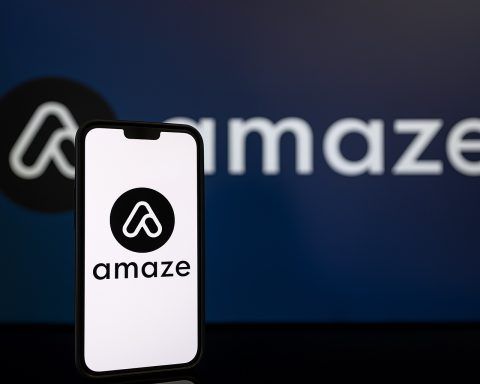- Apple is developing a home companion robot—a 7-inch iPad-like display on a movable arm—targeting a 2027 launch, internally dubbed the “Pixar Lamp,” with a more lifelike, conversational Siri.
- Pebble Time 2 features a 1.5-inch color e-paper display, heart-rate sensor, and about 30-day battery life, while Pebble 2 Duo uses a black-and-white display with no HR monitor, both running an updated Pebble OS.
- Amazon expanded Prime same-day delivery of perishables to over 1,000 U.S. cities, with expansion to 2,300 cities by year-end, free for Prime orders of $25 or more, under a $4 billion logistics push.
- On August 13, President Donald Trump signed an Executive Order to streamline federal launch regulations and expedite environmental reviews, aiming to substantially increase U.S. commercial space launch cadence by 2030.
- ULA’s Vulcan rocket made its first fully operational flight from Cape Canaveral on Tuesday night, carrying two Space Force payloads including the NTS-3 satellite, powered by twin BE-4 engines with 3 million pounds of thrust.
- The FDA approved Insmed’s Brinsupri as the first treatment for non-cystic fibrosis bronchiectasis, a pill priced around $88,000 per year with projected U.S. sales up to $3.7 billion by 2031.
- New York Attorney General Letitia James filed a lawsuit against Zelle and seven banks alleging over $1 billion in fraud vulnerabilities due to lax safeguards.
- In the first half of 2025, Norway’s Tesla deliveries rose 24%, despite Musk controversies, as the country maintains about 80% of new car sales in EVs.
- U.S. authorities secretly embedded location trackers in targeted shipments of AI chips and servers to prevent China diversions, with trackers reportedly found in Dell and Super Micro systems containing NVIDIA and AMD processors.
- Starting August 11, Russia partially restricts voice calls on WhatsApp and Telegram to push users toward domestic apps, with plans for a state-run chat platform under discussion.
August 13–14, 2025 – It’s not all about AI – the past two days delivered a whirlwind of tech news across industries, from surprise gadget revivals and space milestones to major moves in finance, health, and cybersecurity. Here’s a roundup of the biggest developments shaking up the tech world (with not one AI headline in sight):
Consumer Electronics & Wearables: Apple’s Robot Ambitions and a Pebble Comeback
- Apple’s “Tabletop Robot” in the Works: Apple is reportedly developing a home companion robot – essentially a 7-inch iPad-like display on a movable arm – targeting a 2027 launch macrumors.com macrumors.com. Internally dubbed the “Pixar Lamp,” the device would swivel to face users and even chime into conversations with helpful suggestions (like recommending recipes during dinner plans) macrumors.com. Apple is designing a more lifelike, conversational Siri for the gadget, aiming to “act like a person in a room” and engage in back-and-forth planning talks macrumors.com. The robot is still a prototype – but its promise of an interactive, AI-driven (yet hardware-focused) digital butler* has tech watchers buzzing. (Apple hasn’t confirmed details, but a Bloomberg scoop suggests the company is serious about pushing into home robotics.)
- Pebble Smartwatch Revival: In a nostalgic twist, the beloved Pebble smartwatch is back. Original Pebble creator Eric Migicovsky has reclaimed the Pebble name for his new company’s upcoming e-paper watches gizmodo.com. He unveiled final designs for two models – the Pebble Time 2 (with a 1.5-inch color e-paper display, heart-rate sensor and ~30-day battery) and a cheaper Pebble 2 Duo (black-and-white display, no HR monitor) gizmodo.com gizmodo.com. The watches run an updated Pebble OS and focus on simplicity and endurance, eschewing the bloated, “health data-obsessed, sensor-filled” approach of modern wearables gizmodo.com. For longtime fans who miss the ultra-light, notification-centric philosophy of the 2010s Pebble, this comeback already “looks enticing for those of us who can’t be bothered with today’s…all-too-weighty wearables” gizmodo.com. Core Devices (Migicovsky’s outfit) has not given a ship date yet, but the retro-tech crowd is clearly excited to again “Pebble” their messages and fitness stats like it’s 2015.
Enterprise & E‑Commerce: Amazon Takes on Instacart with Fresh Deliveries
Amazon is muscling further into online groceries in a direct challenge to Instacart and Walmart. The company announced that Prime members in over 1,000 U.S. cities can now get perishable foods – think fresh produce, dairy, and frozen items – delivered same-day alongside their usual orders reuters.com reuters.com. By year’s end the service will reach 2,300 cities reuters.com. It’s free for Prime subscribers (orders ≥$25), eliminating the separate Amazon Fresh fee that was previously required reuters.com reuters.com.
Amazon’s move is “a major expansion” of its grocery ambitions, analysts note, especially since it taps Amazon’s massive Prime base at no extra cost reuters.com. “Notably, Amazon has lowered the minimum order to just $25 – a move that directly threatens Instacart by enabling customers to use Amazon for quick, one-off purchases, a core part of Instacart’s value proposition,” said eMarketer analyst Blake Droesch reuters.com. To support the push, Amazon is investing $4 billion to extend same-day/next-day logistics into rural areas reuters.com reuters.com. The competitive impact was felt immediately: on Wednesday, Instacart’s stock plunged 12% while DoorDash and Walmart shares also slipped as investors gauged the threat reuters.com.
Amazon’s retail chief Doug Herrington pitched the convenience to shoppers, saying customers can now “order milk alongside electronics … and have everything delivered to their doorstep within hours.” The one-cart experience for mixed orders will put pressure on smaller grocers, he added reuters.com. Prime’s fresh upgrade effectively folds groceries into Amazon’s ultra-fast delivery machine – upping the ante in the battle for your weekly shopping.
Space & Exploration: Policy Boost for Private Launches, Plus a New Rocket Debut
- White House Eases Commercial Spaceflight Rules: President Donald Trump signed an Executive Order on Aug. 13 aimed at streamlining federal launch regulations to spur the U.S. commercial space industry reuters.com. The order calls many current rules “outdated, redundant or overly restrictive” and directs the FAA to expedite environmental reviews for rocket launch licenses reuters.com reuters.com. “Inefficient permitting processes discourage investment and innovation… limiting U.S. companies’ ability to lead in global space markets,” the order states bluntly reuters.com. It’s a clear win for SpaceX and other private launch providers frustrated by red tape. In fact, though Musk’s name wasn’t in the text, SpaceX stands to be “the single biggest immediate beneficiary,” Reuters notes reuters.com. Musk has long griped that FAA reviews and mishap investigations needlessly slow down Starship tests reuters.com. Now the administration is effectively siding with him: by cutting environmental bureaucracy and fast-tracking permits, officials hope to “substantially increase [the] commercial space launch cadence” by 2030 whitehouse.gov whitehouse.gov. SpaceX and Blue Origin can both cheer a more laissez-faire regime. (Critics, meanwhile, worry about adequate safety oversight – a tension likely to continue as launch rates climb.)
- ULA’s Vulcan Rocket Makes Its First Military Flight: United Launch Alliance finally “fired off its first fully operational Vulcan rocket” this week, marking a major milestone for the next-gen launcher spaceflightnow.com. The Vulcan lifted off from Cape Canaveral Tuesday night carrying two Space Force payloads – one classified spy satellite and one experimental navigation satellite (NTS-3) to augment GPS spaceflightnow.com spaceflightnow.com. This was the Vulcan’s debut national security mission, a crucial certification step as ULA phases out its venerable Atlas V and Delta IV rockets. Powered by twin Blue Origin BE-4 engines, the 198-foot Vulcan thundered into the sky with 3 million pounds of thrust in a spectacle over the Florida coast spaceflightnow.com. “In many ways, you could say Norway helped build Tesla,” said Christina Bu, secretary general of the Norwegian EV Association. (Correction: This quote was misattributed here and belongs to the Tesla story below.) The successful launch (after two test flights last year) means Vulcan is now approved to haul the U.S. military’s most valuable satellites. ULA executives noted this mission – sending the NTS-3 satellite directly to geosynchronous orbit – showcases Vulcan’s high-performance design tailored for “heavy military payloads into hard-to-reach orbits.” With SpaceX dominating commercial launches, Vulcan gives ULA a fresh workhorse to compete for government contracts. As Air Force engineer Joanna Hinks explained, the experimental NTS-3 will test advanced tech to “ensure [GPS] remains the gold standard” for secure positioning – underscoring the national security stakes riding on these new rockets spaceflightnow.com.
Biotech & Health: First-Ever Drug for Chronic Lung Disease Approved
A breakthrough for respiratory medicine – the U.S. FDA has approved pharma company Insmed’s new drug Brinsupri as the first treatment for non-cystic fibrosis bronchiectasis, a chronic and debilitating lung disease. Until now, there were zero approved therapies targeting this condition, which afflicts an estimated 350,000–500,000 U.S. adults with persistent coughing and mucus-clogged airways reuters.com reuters.com. Brinsupri, an oral pill, works by blocking an inflammatory enzyme in white blood cells to prevent lung tissue damage reuters.com. In trials involving ~1,700 patients, it significantly reduced respiratory flare-ups like chronic cough, and was well tolerated at both tested doses reuters.com.
Doctors had previously managed bronchiectasis only with band-aid approaches (antibiotics, physical airway clearance devices, even surgery) reuters.com. So a targeted drug is “a long-awaited victory” for patients. Analysts are upbeat on its potential: “Brinsupri has the chance to drive future profitability” for Insmed, said TD Cowen’s Ritu Baral, who projects up to $3.7 billion in U.S. sales by 2031 reuters.com. Insmed plans to price the medication around $88,000 per year reuters.com – steep, but as the only game in town for this illness, insurers may cover it for severe cases. This FDA green-light (Insmed’s second ever) also validates the company’s enzyme-blocking approach, at a time when larger rivals like AstraZeneca are still testing alternatives for bronchiectasis reuters.com. For sufferers of the disease, Brinsupri’s approval is huge: it’s the first real hope for improving their quality of life and slowing the lung damage that has long been considered irreversible reuters.com.
Cybersecurity & Finance: New York Sues Zelle over $1 Billion Fraud Failures
Popular payment app Zelle is in hot water with regulators. New York Attorney General Letitia James filed a lawsuit accusing Zelle and its bank owners of “security lapses” that enabled rampant fraud – to the tune of over $1 billion stolen from users reuters.com reuters.com. The complaint says Zelle ignored basic anti-fraud safeguards and left consumers vulnerable to scams. Specifically, James slams Zelle for not implementing measures like payment verifications or account protections that rivals use, alleging the platform “resisted” such fixes even as impostors drained customer accounts reuters.com. The suit claims the seven big banks behind Zelle (including BofA, JPMorgan, and Wells Fargo) sometimes shrugged off victims’ complaints while fraudsters freely remained on Zelle’s network reuters.com – resulting in “rampant” swindles.
Zelle’s response: the company blasted the lawsuit as “a political stunt to generate press, not progress,” calling James’ allegations meritless reuters.com. Zelle insists it’s investing in stopping crime on the platform and that overall fraud rates are low. (It’s true Zelle recently rolled out more safety features – but NY officials say those were “too little, too late” for many victims reuters.com.) The AG’s suit seeks to force stronger fraud protections and restitution for defrauded customers reuters.com. Why it matters: Zelle moves $200+ billion a year as a bank-backed Venmo alternative, but it’s faced growing scrutiny over scams – like thieves tricking users into instant transfers that can’t be reversed. This case amps up the pressure on both Zelle and its owner banks to take responsibility for fraud. If James prevails, expect industry-wide changes in how peer-to-peer payment apps handle scams and reimburse users.
Automotive Tech: Tesla Thrives in Norway Despite ‘Tesla Shame’
Elon Musk’s polarizing politics are hurting Tesla sales in parts of Europe – but not in Norway. In what analysts call the “Tesla shame” phenomenon, some eco-conscious consumers have soured on the EV maker due to Musk’s recent alignment with right-wing figures reuters.com reuters.com. Tesla deliveries plunged by 50% or more over the past year in markets like Germany, Sweden and the Netherlands as buyers balked at the Musk brand. Yet Norwegian Tesla sales jumped 24% in the first half of 2025 reuters.com, defying the trend. How come? Simply put, Norwegians love EVs – and Tesla’s practical advantages outweigh any misgivings about Musk.
Norway has one of the highest EV adoption rates in the world (thanks to generous incentives and early infrastructure buildout), and Tesla was instrumental in that revolution. “In many ways, you could say Norway helped build Tesla,” observes Christina Bu of the Norwegian EV Association reuters.com. The company’s Supercharger network and vehicles are deeply embedded in Norwegian life – “everyone in Norway knows someone who owns a Tesla,” Bu adds reuters.com. For many drivers, the seamless charging, range, and price-to-performance of Tesla models still trump any political discomfort. “Having a car that fulfills your needs at an affordable price is much more important to [Norwegian buyers] than dealing with ‘Tesla shame,’” says Øyvind Solberg Thorsen, head of Norway’s Road Federation reuters.com. Indeed, some Norwegian Tesla fans openly wrestle with the Musk dilemma. “It’s a bit of a double-edged sword,” admits Espen Lysholm, a Tesla owner in Oslo, noting he did think twice about Musk’s behavior – but ultimately bought his third Tesla because “no one comes even close” to its tech and charging network reuters.com reuters.com.
Tesla has even started running promotions (like limited-time price cuts) in Norway, which Lysholm said was “practically free money” and spurred him to jump on a new Model Y reuters.com. Those deals haven’t saved sales in Sweden or Denmark, where Tesla’s local image has taken a hit reuters.com. But in Norway – where EVs make up 4 in 5 new car sales and Tesla enjoys almost folkloric status – the brand appears remarkably insulated from Musk’s controversies. As one Norwegian owner, Odd Bakken, put it: “Tesla was the first electric car that was actually a good car” reuters.com, and that legacy still carries weight. Musk’s politics may be contentious, but for now, Norway’s Tesla love story continues unabated, bucking a wider European backlash.
Semiconductor Industry: U.S. Plants Secret Trackers to Thwart Chip Smuggling
In a covert twist straight out of a spy novel, U.S. authorities have been hiding tracking devices inside certain high-tech chip shipments – all to prevent advanced semiconductors from illegally reaching China. Reuters revealed that federal agents, in an undisclosed operation, embedded location trackers in “targeted shipments” of AI-capable chips and servers deemed at high risk of diversion to China reuters.com. The tiny transmitters, slipped into shipping boxes and even inside hardware, have one job: phone home if the package strays from its approved destination reuters.com reuters.com. It’s an extraordinary tactic illustrating how far the U.S. will go to enforce its export bans on cutting-edge chips.
Officials say they use trackers only on select shipments under active investigation reuters.com. But industry insiders told Reuters they’ve seen them in servers made by Dell and Super Micro containing NVIDIA and AMD processors – precisely the type of AI chips Washington doesn’t want China covertly obtaining reuters.com. In fact, some smugglers have grown wary: U.S. court filings show alleged chip traffickers were literally checking for trackers on devices destined for China reuters.com. One conspirator explicitly warned an accomplice, “Pay attention to see if there is a tracker on it… who knows what they will do,” referring to U.S. authorities reuters.com reuters.com. (His colorful remark about the “Trump administration” underscored smugglers’ awareness of stepped-up enforcement.)
The Justice Department and FBI declined to comment on specific methods reuters.com. China’s government, upon hearing of the report, said it was “not aware of the matter,” while decrying U.S. export curbs in general reuters.com reuters.com. Tech companies are staying mum too – Dell said it “is not aware” of any U.S. trackers in its shipments, and NVIDIA flatly stated, “We don’t install secret tracking devices in our products.” reuters.com. Still, the cat-and-mouse game is clearly on. This revelation comes as the White House and Congress consider requiring built-in “location verification” features on advanced chips sold overseas reuters.com. (Beijing recently blasted that idea, even summoning NVIDIA to complain about supposed “backdoors” in its chips, which the company denies reuters.com.) For now, the U.S. is literally tracking chips in the wild – a bold gambit to stop its most powerful semiconductors from empowering rival arsenals.
Telecommunications & Censorship: Russia Curbs Messaging Apps, WhatsApp Fires Back
Russia has intensified its crackdown on Western tech platforms – this time targeting secure messaging. Starting August 11, Moscow began restricting voice calls on WhatsApp and Telegram, alleging the apps failed to comply with data-sharing laws reuters.com. Russia’s digital ministry claims the foreign-owned messengers won’t hand over encryption keys or user info needed in fraud and terrorism investigations reuters.com reuters.com. By “partially restricting” call functionality, regulators say they are “counteracting criminals” on those services reuters.com. Independent reporters in Russia confirmed WhatsApp calls have been effectively crippled (plagued by dead connections and buzzing noises), and Telegram calls are spotty as well reuters.com.
This move is part of the Kremlin’s broader push for “digital sovereignty” – i.e. driving Russians to domestic apps that authorities can monitor. President Putin has ordered development of a state-run chat platform to replace WhatsApp/Telegram reuters.com. One lawmaker even declared WhatsApp’s continued availability a “breach of national security,” suggesting it may be forced out entirely reuters.com. (Meta’s WhatsApp is one of the few Western social services still accessible in Russia, even though parent Facebook was banned and labeled “extremist” in 2022.)
WhatsApp is not taking it quietly. On Aug. 14 the company blasted Russia’s actions, saying the government is “trying to block it from over 100 million Russian people” precisely because WhatsApp offers “private, end-to-end encrypted” messaging that defies surveillance reuters.com reuters.com. “We will keep doing all we can to make encrypted communication available to people everywhere, including in Russia,” WhatsApp vowed in a statement reuters.com. Telegram, for its part, said it aggressively moderates public channels for calls of violence or fraud – even using AI tools to scrub millions of posts – implying it’s cooperating against abuse without undermining user privacy reuters.com.
Critics say the Kremlin’s crusade has little to do with fraud and everything to do with control over information (especially since Russia’s invasion of Ukraine). Human rights groups note that Russia has steadily tightened internet censorship, driving out foreign tech under the pretext of legal non-compliance reuters.com reuters.com. This latest squeeze on messaging apps may be a prelude to outright blocking. For now, Russians can still text on WhatsApp and Telegram – but voice and video calls are largely dead. The incident underscores a growing East-West tech divide: secure Western apps see offering encryption as a fundamental right, while regimes like Russia see it as a threat. As WhatsApp’s rejoinder makes clear, the battle between user privacy and state demands is coming to a head in Russia’s digital sphere reuters.com.
Sources: Official company and agency statements, and reporting by Reuters, BusinessWire, Engadget, Spaceflight Now, Gizmodo and others reuters.com macrumors.com reuters.com reuters.com spaceflightnow.com spaceflightnow.com reuters.com reuters.com reuters.com reuters.com reuters.com. Each development is linked to detailed coverage for further reading.









